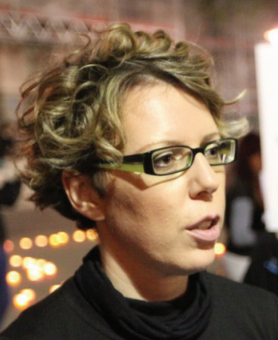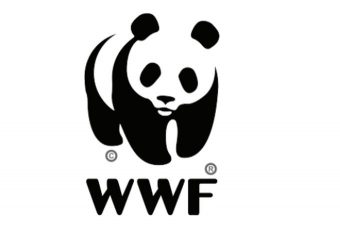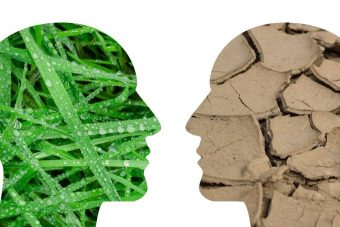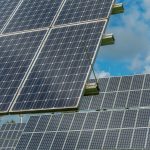
One of the most prominent actions in Serbia’s public life that deals with nature is ‘Earth Hour‘. It is an action that is being implemented throughout the world and the creators of this emprise are the representatives of WWF organisation. To turn off the light for an hour is a symbolic message that by savings and energy efficiency we think about the future of the planet. WWF is an abbreviation of the World Wide Fund for Nature. At the beginning of its operation in 1961 this abbreviation represented the following – the World Wildlife Fund of the World Wide Fund for Wildlife. In the spotlight were rare animal species, ecosystems and eco habitats.
This is certainly the biggest and the most prestigious organisation engaged in nature conservation. It operates in over 90 countries and has around 5 million supporters. Mrs. Duška Dimović is the executive manager of WWF programme in Serbia. We talked with her about climate change and the activities that are carried out, bearing in mind that she often travels, attends working meetings and that she is au courant with all global activities of the WWF.
EP: WWF is an international organisation and the operation of your branches around the world is focused on the protection of nature, animals and plants. What is your global strategy when it comes to climate change? Are there any specific campaigns, programmes and goals to which you aspire?
Duška Dimović: Climate change affects everyone, plants, animals and people. Consequences are felt across the planet, ecosystems are threatened, as well as the welfare and safety of people. Climate change reminds us that despite the rapid technological development we are fully dependent on nature that is natural resources and natural cycles. For this reason, WWF as a global organisation whose primarily concern is the protection of nature, sees climate change as the biggest challenge for our planet and a large part of our activities we direct in that direction. The main drivers of climate change are certainly CO2 emissions from fossil fuels, which our civilisation still relies on. Mitigation is necessary, that is measures of climate change by reducing the emissions of greenhouse gases in order to reduce the effects of climate change. WWF intensively promotes the need for reduction of emissions and abandoning the conservative development strategies that are mainly based on fossil fuels. On the other hand for us it is very important to work on adaptation to climate change, that is raising our ability to adapt to changed conditions. Preserved nature and healthy ecosystems are very important for that.
In essence we are focused on working with the local population which is directly exposed to the consequences of climate change, preservation and enhancement of ecosystems and their adaptability to rapid climate change, acceleration of transition to renewable energy sources and of course the reduction of emissions. One of the most popular campaigns is ‘Earth Hour’ when we invite people to turn off the lights in their homes for an hour. This symbolic action reminds us that every hour is an hour for our planet and that energy efficiency is necessary. With the help of this campaign which involves millions of people and thousands of cities around the world, we turn attention to the consequences of climate change and to the necessity for a responsible attitude towards our planet.

EP: The definition of climate change states that they are directly or indirectly attributed to human activities. How do you comment that, does the functioning of mankind self-destructive to that point or the practices can be changed in industry, mining, power plants and alike?
Duška Dimović: Human activities are definitely the main cause of climate change. The problem is that most people still believe that natural resources are inexhaustible and that nothing special will happen if we continue with the current behaviour that relies on fossil fuels and intensive use of natural resources. Ecosystems still have capacities to mitigate our negative actions, but it is obvious that this capacity is decreasing and that we feel drastic economic and social consequences. ‘Living Planet Report’, published by WWF, shows the change in the status of biodiversity, ecosystem and human consumption of natural resources. By following the status of species in nature, the index of living planet follows the status of ecosystems, and this index fell by 30 percent from 1970.
This global trend suggests that we are degrading natural ecosystems at a level which has not been recorded in human history, we are using more resources than we have, ecological footprint is increasing and we are creating ecological deficit. This means that we consume and destroy ecosystems faster than they need to renew and regenerate. Ecological footprint represents the sum of all ecological services that people ‘demand’ from a certain area. It includes biologically productive areas (or bio capacity) needed for crops, grassland, residential areas, fishing and forest areas. Data on ecological footprint warn us that humanity lives beyond the capacity of the planet. The natural resources of our planet are plants, animals, soil, water, atmosphere and even the people themselves. We all together make the part of ecosystem of our planet, which means that if there is a biodiversity crisis, our health and livelihoods will also be in danger.
EP: What would be the main WWF’s observation when it comes to Serbia? We know that the amount of water in river basins has declined, what other data can you share with us?
Duška Dimović: In Serbia, the risk of natural resources was significantly greater than the risk of technological accidents, according to the data of the International Database on Disasters (EM-DAT). Natural disasters accounted for 62 percent in the total number of disasters. The floods dominate among natural disasters with 55 percent of the total number. Most models for the future predict greater frequency of extreme climate conditions such as floods, landslides, fires, droughts, etc. The effects of natural disasters are significantly enhanced by proportionally bad economic situation in the country. Also, this risk was recognised at political levels, and thus the improvement of prevention systems, defence against disasters and mitigation of its consequences have been recognised by many national governments and international organisations as a priority.

According to the research of climatologists, Serbia is in the group of countries that will be very exposed to climate change in the near future. The consequences are already visible, we have frequent floods, droughts, water regimes are perturbed. It is difficult to talk about concrete changes in ecosystems, since we do not have developed monitoring system (biomonitoring) at the national level, but it is obvious that drying of the forests is more and more present, as well as the changes in distribution of certain species, invasive species that are spread due to global warming that cause damage in agriculture and forestry, rapid changes in some natural habitats, primarily in high mountains and those related to water.
EP: In your opinion, what would be the necessary measures for preserving plant and animal species despite climate scenarios which envisage a rise in temperature?
Duška Dimović: The measures for emission reductions are equally important as the adaptation measures to climate change. The adaptation to climate change in terms of plant and animal species’ protection as well as the protection of their habitats means focusing on the most vulnerable habitats and species as well as on those ecosystems which provide us with services which we depend on, such as water supply, water treatment, mitigation of floods consequences, mitigation of extreme weather conditions and alike. Reduction of gas emissions which increase the effect of greenhouse gases, saving the electricity and the use of environmentally friendly solutions for the electricity production are of critical importance. Serbia has a great potential for energy savings and the improvement of energy efficiency. It is also necessary to switch to cleaner, renewable energy sources, such as geothermal energy, biomass, wind, sun and water but primarily in a sustainable way.
Mitigation of climate change can be effective only with the strong cooperation of all sectors. We have a week tradition of joint planning and decision-making, but we must rapidly work on it. Water as a resource is certainly the centre of attention when we talk about the climate change, but also water management is very complex due to the interests of many sectors. We have to improve our relationship with water and natural water habitats significantly, because this is not important only for nature but also for people that is for energetics, agriculture, industry and all other sectors.Together with its partners, WWF has prepared the study ‘Assessment of Vulnerability to Climate Change’ in which we analysed five sectors in detail: water management, public health, agriculture, energetics and biodiversity. In each of them, significant exposure and vulnerability to climate change has been identified as well as the possibility of the development of adaptation system. It is necessary to pay great attention to the protection of biodiversity and ecosystems that are of great importance in adaptation to climate change and thus by preserving the nature we protect ourselves.
Interview by: Vesna Vukajlović





